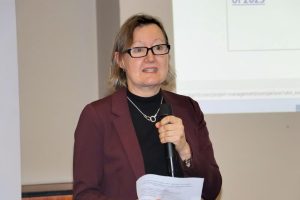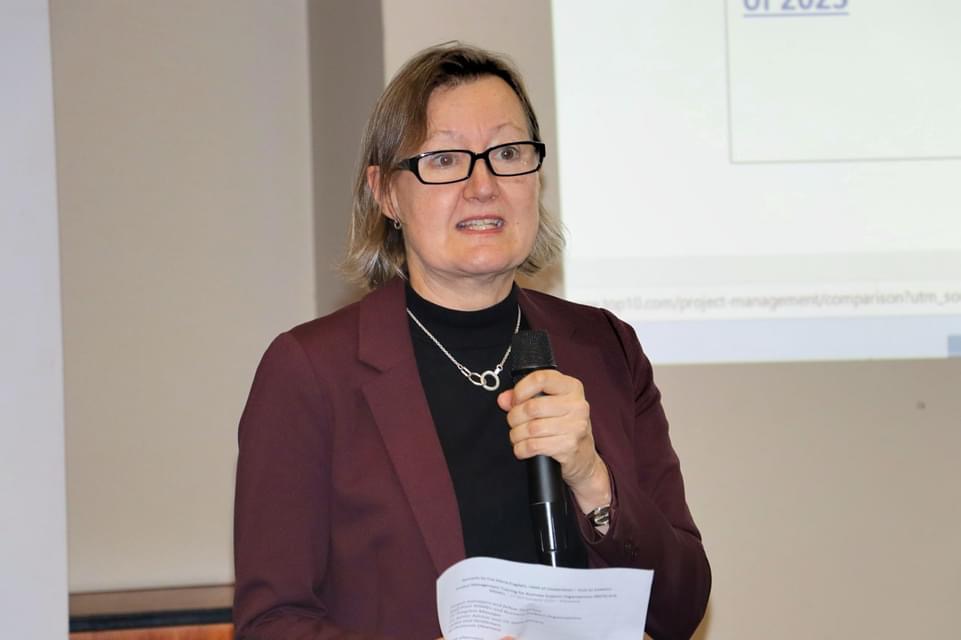By Siphesihle Dlamini
In a forward-thinking collaboration aimed at addressing mental health issues among the youth in Eswatini, a Creative Art and Mental Health event took place at the Yini Loku Arts Centre in Mbabane on June 13, 2024.
Spearheaded by the dedicated efforts of the COSPE, this transformative initiative underscored the critical need for youth-led responses to tackle the pressing mental health challenges faced by the country’s population.
In her address, EU Head of Cooperation, Eva-Maria Engdahl, expressing her enthusiasm for the event, highlighted the significance of focusing on mental health as an essential aspect of overall well-being.
“I am very glad to be part of this very important Youth-led response campaign on ‘Transformational Youth Leadership to Address Mental Health Issues Affecting the Youth’. Mental health is of utmost importance,” she remarked.
Citing the alarming statistics from the guiding booklet ‘Lighten your burden,’ which brings to light Eswatini’s struggle with high suicide rates despite its reputation as a peaceful nation with a content population,
she stressed the urgent need for accessible mental health services in a country grappling with rising Gender-Based Violence (GBV), staggering youth unemployment rates, and pervasive poverty.
“The Kingdom of Eswatini is known as a peaceful country with happy people, but with reportedly one of the highest suicide rates in the world.
The country also faces rising Gender-Based Violence (GBV), a youth unemployment rate of over 50 per cent and almost 60 per cent of the population living below the national poverty line, so it is no surprise that the country is also facing severe mental health issues,” she revealed.
According to the same booklet, the mental health services in Eswatini are a challenge as no Mental Health Policy exists and there is only one public mental health facility serving the entire country; private psychologists are not affordable for most of the population.

Some Medical Aid providers have drastically cut down on mental health benefits.
“Many people do not see their mental health as valid enough to attend to because of the discrimination and stereotypes associated with it, she said.
ALSO READ: EU Bushfire Schools Festival ignites passion for art
Acknowledging the formidable hurdles in providing mental health support due to the absence of a Mental Health Policy and limited public facilities, Engdahl emphasized the EU’s commitment to fostering change through strategic partnerships and funding initiatives in Eswatini.
She added that as the EU fully agrees on the importance of making mental health services accessible for all, especially for people from underprivileged circumstances. She stated that mental health is about their emotional and psychological well-being.
“It helps us handle ups and downs in life and become more resilient in our daily lives. It affects our choices and relationships with others. Mental health goes beyond just having mental disorders.
It affects individuals with different levels of challenge and distress, leading to different social and clinical outcomes.
We do so through partnerships and by funding different projects and programmes in Eswatini, and I will mention some of them,” she remarked.
Noteworthy among these efforts is the establishment of a Youth Advisory Board comprising 14 members, dedicated to supporting various social inclusion initiatives and contributing to transformative projects.
Central to the EU’s mission is the implementation of a comprehensive programme focusing on Human Development and Social Inclusion, with a budget of over E500 million allocated to initiatives promoting vocational education and skills development for disadvantaged youth and women.
She said this programme is now being implemented with an Action Plan entitled Skills for Youth Employability, Entrepreneurship and Empowerment Programme in Eswatini.
Addressing the critical nexus between unemployment and skills mismatch, the programme aims to empower vulnerable groups,

including youth, women, and persons with disabilities, through tailored interventions that bridge the gap between education and employment opportunities.
One of the two components looks at promoting a holistic approach to empowering vulnerable groups among youth. It will include school – dropouts and their reintegration, support to teachers,
linking non-formal and formal education, raising GBV awareness and prevention, providing mental health support, and social inclusion of people with disability.
ALSO READ: EU Bushfire Schools Festival brings together 600 learners for art expression
Important will be the empowerment of these vulnerable groups, which besides youth, women and PDW, also include groups such as the correctional services and orphanages, and to support their economic opportunities through training, mentoring and funds.
“As regards our programmes and projects, we are working on a new comprehensive programme on Human Development and Social Inclusion with two interlinked sectors of intervention market-driven vocational education and training (TVET). Empowerment of disadvantaged youth and women in vulnerable situations.
Key challenges in the programme are the high unemployment rates for youth coupled with the lack of relevant skills for the labour market and entrepreneurship, so there must be a match between skills and jobs.
A key component of the EU’s strategy involves promoting a holistic approach to empowering vulnerable youth, encompassing initiatives to reintegrate school dropouts, enhance GBV awareness, provide mental health support, and facilitate economic empowerment through training and mentorship.
“Through partnerships with organizations like COSPE under the ‘YES – together we can’ project, the EU is actively engaging youth and women coalitions to address pressing societal challenges, with mental health awareness emerging as a priority area for intervention,” Engdahl said.
Through this project, the Swaziland Youth Network and the CSOs part of the consortium have identified Mental Health as one of the main challenges for youth, and a sub-grant has been given to sensitize the youth in the country on this topic.
Embracing the transformative power of art and sport in promoting mental well-being, the EU’s initiatives extend to supporting grassroots art activities and community engagement efforts, recognizing the potential of creative expression in fostering resilience and healing.


